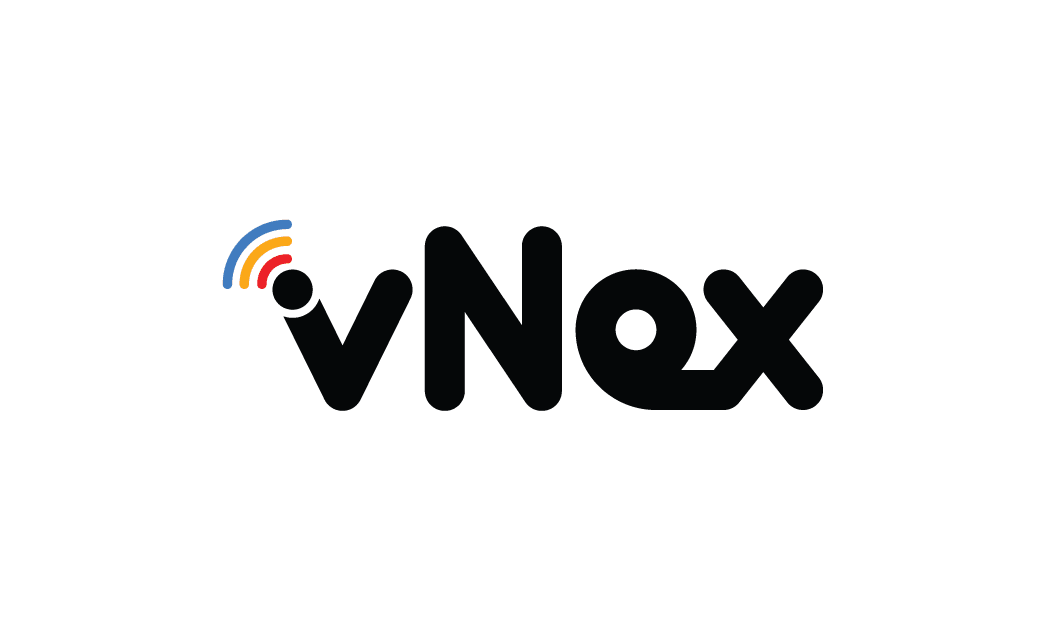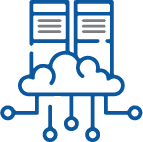Introduction
Cloud: An IP PBX is a business telephony system hosted in the cloud, not remote physical hardware. Cloud telephony offers virtually enterprise-class telephony services, so businesses can reap the benefits of VoIP technology without a major upfront investment in equipment.
With a cloud phone system, all PBX functionality is handled in the cloud. This eliminates the need to purchase an expensive hardware PBX and maintain it on-site. Calls are made via the Internet, so there is no territory.
Companies can realize a lot of benefits by shifting to cloud-based mobile services.
Key Benefits Include:
-
- Hardware and maintenance cost savings
- Scalability to add or reduce capacity as needed
- Flexibility to support distributed and remote employees
- No significant expenditure on additional hardware
- Predictability of operating costs
- Built-in redundancy and continuous operation
- Rapid deployment of advanced telephony facilities
In this article, we will explore how a cloud VoIP system can provide significant cost savings compared to an on-premises PBX. We look at how pay-as-you-go models and automation reduce hardware, maintenance, and labor costs.
Cost Savings on Hardware
One of the biggest benefits of a cloud PBX is the cost savings for hardware. With traditional PBX telephony systems, businesses must purchase expensive hardware such as server switches, routers, phones, and other equipment. All this hardware must be purchased in advance and installed and maintained on-site.
But with a cloud-based telephony system, all of the PBX hardware is managed by the service provider. Companies do not have to buy or install expensive PBX equipment or phones.
Predictable Operating Costs
One of the biggest advantages of a cloud IP PBX is the predictability of operating costs. If you have an on-site PBX system, you should budget for the upfront capital expenditure on the PBX hardware and software.
Ongoing operating costs then become unpredictable as issues arise requiring the services of vendors or consultants. There can be staggering costs for discontinued maintenance, additions, capacity upgrades, and implementation of security measures.
Cloud IP PBX uses monthly or annual subscription plans. Orders include all hardware, software, repairs, upgrades, and patches.
So, your phone plan becomes an operating expense rather than a capital investment. This makes budgeting much easier, with no surprise costs down the road. Subscriptions are based on the number of users and features, so costs rise or fall quickly as the business grows or shrinks. Overall, the subscription model generates very predictable operating costs.
Companies experience economies of scale, with minimal upfront capital investment in a phone system. The peace of mind from consistently predictable costs can be especially valuable for startups and small businesses with limited budgets.
Workflow Continuity
In a cloud IP PBX, workflow continuity is built-in. Employees can work remotely while still having full access to the phone system. Calls can be routed to mobile phones or other devices. If there is an issue with the location of an office, the phone system will remain operational, ensuring business activity is not disrupted.
Key Advantages for Business Continuity Include:
-
- Location Independence: The telephone system is installed remotely, so it can be accessed from anywhere via an internet connection.
- Remote Access: Users can make and receive calls on the complete phone system while working from home or other locations. Features like call forwarding make communications transparent.
- Resiliency: Cloud platforms use high-availability architectures that span multiple data centers. There is no single point of failure.
- Disaster Recovery: During disaster situations such as a flood or fire that disables an office building, the cloud telephony system stays online and available to employees.
- Continuous Operation: Through the network connection, the telephone system remains operational. Physical hardware failures do not cause downtime or outages.
Cloud IP PBX delivers continuous operation and increases uptime in an affordable and convenient manner compared to existing telephony systems. When employees can stay connected from anywhere, communication remains seamless despite stressful events. This eliminates a huge amount of pain for organizations and allows them to create a modern, flexible work environment.
Disaster Recovery
With a cloud IP PBX, business continuity is built-in. In the event of a disaster such as a flood, fire, or earthquake that damages on-site equipment, the company’s phone system in the cloud remains operational.
This can make a big difference in the openness of the business after a disaster. All call routes, voice messages, settings, and data are stored offsite by the cloud phone service provider. No equipment on-site is subject to damage.
If the office phones no longer work, simply forward calls to employee cell phones or other designated numbers. The peace of mind of having a communication system that remains operational after a disaster is invaluable. Downtime can be extremely costly for a business.
Cloud platforms provide redundancy and stability so businesses can remain accessible and reduce disruption. As long as there is internet, calls can be answered anywhere. The disaster recovery is essentially built into cloud phone systems at no cost. For on-site programs, a continuing retrenchment plan must be developed at greater cost. The cloud provides this naturally by geographically distributing the data centers.
Availability of Advanced Features
One of the major benefits of a cloud IP PBX is the availability of advanced features that would be cost-prohibitive to use on a traditional on-premises PBX system. If you have a cloud system, these features are installed and ready to use without purchasing additional hardware.
Key Combinations of Communication Features Include:
-
- Video Conferencing: Face-to-face video conferencing and screen sharing to improve productivity and communication. Cloud video is scalable and works easily on both desktop and mobile devices.
- Instant Messaging: Real-time chat between employees to quickly discuss questions and share information. IM history is stored and searchable.
- Availability: Check the status of colleagues (available, busy, remote) before contacting them to improve productivity.
- Softphones: Make and receive calls and texts on your computer or mobile device using a downloadable app – no desk phone required.
- CRM Integration: Click-to-call from your CRM to save time and automatically log call details.
- Contact Center: Advanced call routing, IVR menus, call recording, and monitoring for customer support.
- Mobility: Take and receive calls on any device, anywhere with full business phone functionality.
- Meetings: Multi-party audio conferences, webinars, product demos, and online forums.
- Team Chat: A permanent chat room for communicating with departments, project teams, and more.
- File Sharing: Share files and documents between phone systems.
By leveraging the integrated communication capabilities of cloud telephony systems, companies can improve productivity, collaboration, and customer experience—all without having to purchase additional hardware or software.
Conclusion
Adoption of cloud-based IP PBX solutions can provide enterprises with significant cost savings and benefits compared to managing an on-premises PBX system. By leveraging the cloud, companies can reduce the cost of hardware, maintenance, and upfront investment.
The cloud also offers greater flexibility to scale up or down as business needs change, without having to purchase additional equipment.
Key Advantages of Cloud-Based IP PBX Include:
-
- No significant PBX hardware and software costs
- Predictable operating costs based on the number of users and features
- Ability to quickly add or remove extensions as needed
- Automatic updates and maintenance without IT overhead
- Resiliency through built-in redundancy and failover
- Access to enterprise-level features and integrations
When you transition to the cloud, it can be a modern communication system without the installation of large devices. Total costs are more manageable and adjustable for fluctuating business requirements.
Companies can use advanced mobile features to improve productivity with unskilled or unprepared employees. With lower equipment, IT, and development costs, cloud IP PBX provides a flexible and cost-effective option for business telephony systems.





















